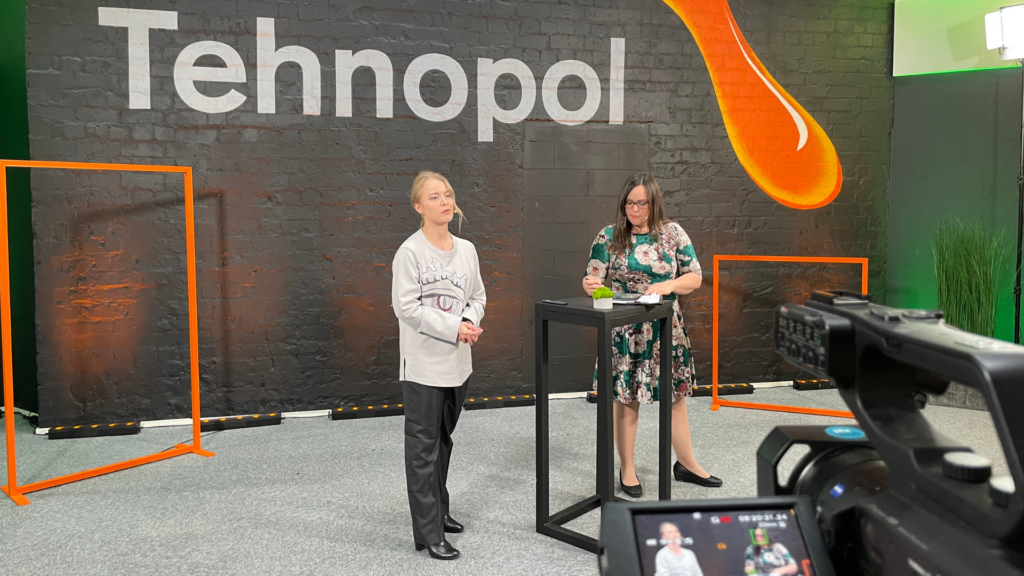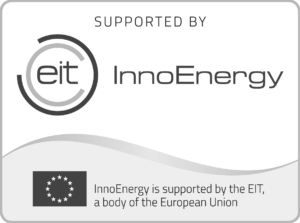22.11.2022
Innovation and teamwork both play an important role in treating depression

On November 4, the Connected Health Cluster, headed by Tehnopol, organised a webinar in association with Janssen and Therasync, which focused on innovative solutions and teamwork in the treatment of depression.
Obstacles to implementing digital solutions
In her opening address, Tehnopol’s HealthTech and Connected Health Cluster Manager Piret Hirv said that cooperation and a supportive ecosystem for companies developing innovative solutions is very important. In Tehnopol, the Cluster is the embodiment of such an ecosystem.
Improving the treatment of mental health conditions starts with the willingness of the patient to seek help and, through a support network/team, find possible solutions to their concerns. The role of the state is just as important because without support from the state, there is no way to introduce novel solutions. It is up to the state to create an environment where patients feel safe and have access to the services they need. Estonia has demonstrated through its actions that it considers mental health important and would like to work with businesses.
When considering the obstacles, Piret Hirv said that there are several aspects that may prevent the implementation of digital solutions. First, there is of course funding to consider – solutions must be evaluated and validated to ensure that they do not harm the patient in any way. This, however, can be an expensive process. On the other hand, private investors are not prepared to back companies whose ideas have not been validated. Another major obstacle is that solutions are created before actual consideration is given to the problem they are trying to tackle. “We need to start by identifying the need and the problem of the target group; only then can we start looking for technologies,” said Hirv.
Ministry currently targeting local governments
The webinar’s speakers included Ingrid Ots-Vaik, project manager of the mental health department of the Ministry of Social Affairs, who gave an overview of what the department is currently working on. The department’s activities are based on the Green Book on Mental Health (approved by the government in 2021), various expert opinions, the Public Health Development Plan 2020-2030 and the Well-Being Development Plan 2020-2030 as well as the WHO Mental Health and Well-Being Strategy.
Current focus points of the department of mental health of the Ministry:
- Moving towards prevention when planning actions
- Developing services towards community level and lower intensity services
- Quality development and assessment of the impact of interventions
- Mental health data and monitoring
When speaking about completed, ongoing as well as proposed activities, Ingrid Ots-Vaik highlighted the following milestones:
- Mental Health Action Plan (to be completed in December 2022)
- Public Health Survey (completed in June 2022)
- Study on the treatment of suicidal patients in primary care (2022)
- Changes to the organisation of psychological treatment (due to enter into force in autumn 2023)
- Funding for induction years for psychologists (2022)
- Local government mental health service benefits and remuneration subsidy for community psychologists (work has been under way from the end of 2021)
- Activities to empower local governments
- Model for providing mental health care in palliative care (June 2023)
- Ukraine crisis – organisation of mental health and psychosocial support for war refugees (from March 2022)
The main focus is currently on encouraging local governments to provide mental health support, since local governments are positioned closest to the target group.
Working together towards innovative solutions
Describing their cooperation with Tehnopol, Kairi Kontkar, Head of Innovation at Janssen, said that both Janssen and Tehnopol want to help improve the treatment of mental health and depression in Estonia. When they started working together a year and a half ago, the state was also on the look out for innovative solutions to alleviate mental health bottlenecks.
The Green Book on Mental Health revealed a shortage of mental health professionals, an increase in the number of people in need of help (including young people) and the fragmentation of services as the main challenges in the area. Together, they began mapping out the needs of doctors as well as patients. “We picked the most urgent problems, where a solution based on digital technology would result in a major leap forwards,” said Kairi Kontkar.
One of the concerns that emerged was the lack of effective communication between the different members of the treatment team. Therasync, who strives to become the leading international case management platform in the field of mental health, stepped in to handle this issue.
Therasync brings common platform to specialists and patients
Medical doctor and CEO of Therasync Ann Leen Mahhov provided an overview of the possibilities and plans for the platform they are developing. Therasync’s priority is to tackle the problem of fragmentation in the treatment of depression. “At the moment, every specialist acts independently, but mental health is part of an integral approach. The treatment of mental health should be a team effort where all members of the team actively communicate,” said Ann Lee Mahhov.
The advantage of Therasync is that the patient does not have to go over their case to every new specialist who joins the team – all the information is kept in one place and is accessible to everyone. Patients themselves can also use the platform to track their progress. Therasync gathers representatives from different institutions onto a single platform and helps to keep the focus on the patient.
Therasync has now gone through a pilot phase, thanks to which they received a lot of useful feedback. The pilot treatment team included the patient, their general practitioner, a mental health nurse, a GP nurse, a psychiatrist and a therapist. The one-month pilot project was carried out in both northern and southern Estonia to check for any regional differences.
As a result of the project, medical professionals said that the platform provided a very good integral overview of the patient’s care pathway. The fact that specialists could turn to each other for advice was also highlighted as a plus. Ann Leen Mahhov said that the pilot project reassured them that the platform cannot account for all communication because face-to-face communication is also sought. Feedback from one patient in particular said that for the first time she felt supported and cared for. The platform’s comprehensive structure also received praise.
The next step is to start developing the platform and testing everything in real time. Ann Leen Mahhov hopes that the platform will be ready and that new tests can start at the beginning of 2023. Therasync is therefore looking for people who would like to contribute to the development of their platform – healthcare professionals and support team members alike are welcome to pitch in.












